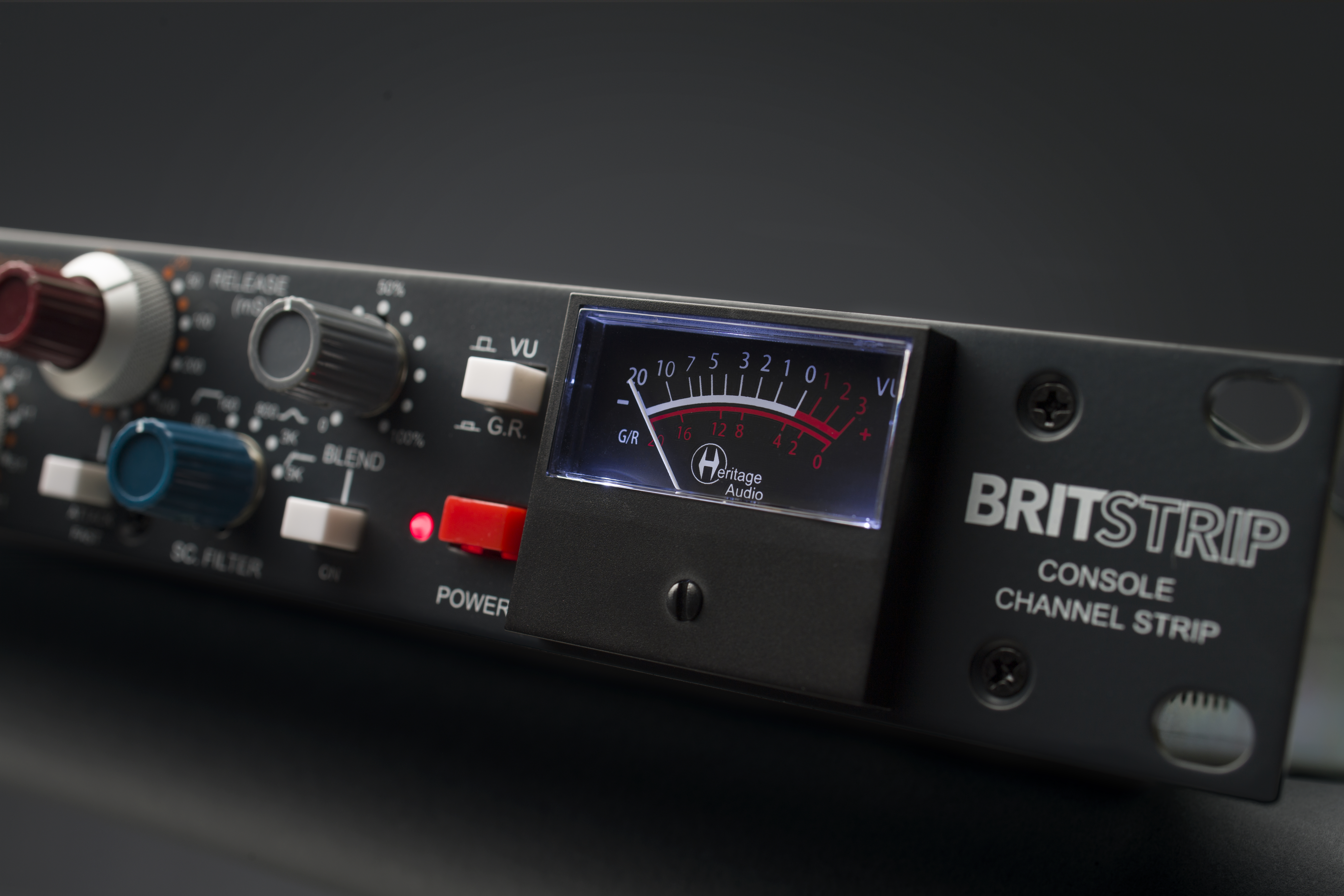Heritage Audio launches BritStrip hardware console channel strip with Successor-like compressor
/MUSEWIRE – Music News/ — Heritage Audio has announced the BritStrip — “beautifully representing the culmination of 50 years of analogue design in a single-space 19-inch rack device that nails the sound of yesteryear’s iconic recordings for present-day demanding engineers.” It is a British-spec discrete Class-A console channel strip with the same diode bridge compressor found in the European pro audio manufacturer’s multi-award-nominated Successor stereo bus compressor.

Heritage Audio’s BritStrip console channel strip creatively combines a real-deal 73 mic preamplifier, an expanded 73 equalizer, and a discrete Class-A DI (Direct Input) with the acclaimed diode bridge compressor found in the European pro audio manufacturer’s multi-award-nominated Successor stereo bus compressor, the latter already acknowledged as a noteworthy development by virtue of its bringing a whole new lease of life to a 60-year-old patent, thanks to expanded features and incredibly fast attack/release times.
The BritStrip console channel strip’s D.I. is also taken from the highly-acclaimed design found in the 73JR II, an all-discrete Class-A JFET (Junction Field-Effect Transistor) circuit fronting the microphone transformer to provide all the colour and weight any present-day demanding engineer could conceivably ask for. Furthermore, the D.I. also includes a passive THRU output to feed a separate amplifier.
LEARN MORE: https://heritageaudio.net/catalogue/britstrip/
The BritStrip is shipping and available now via RAD Distribution in the US (http://www.raddist.com/heritage-audio.php) — with a MAP (Minimum Advertised Price) of $2,499.00 USD — and elsewhere — with an SSP (Standalone Selling Price) of €2,499.00 EUR (including VAT) — via Heritage Audio’s growing global network of dealers
Heritage Audio is a European pro audio manufacturer based in Madrid, Spain. Founded in 2011 by Peter Rodriguez, a sound engineer and producer with extensive experience in the music industry, its aim is true: to bring back the philosophy of the golden age of recording and adapt it to the needs of 21st Century studios while contributing to transitioning music into a new era in the process


